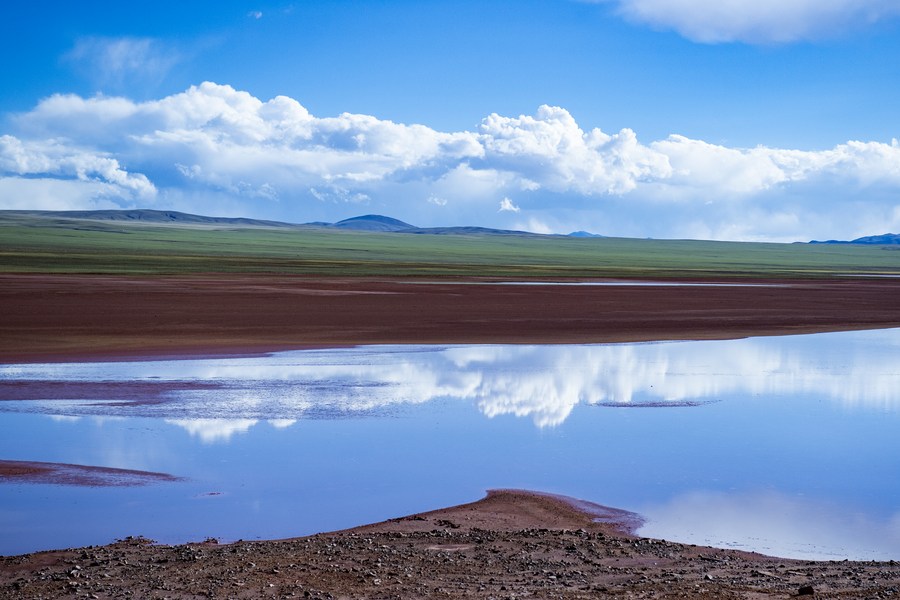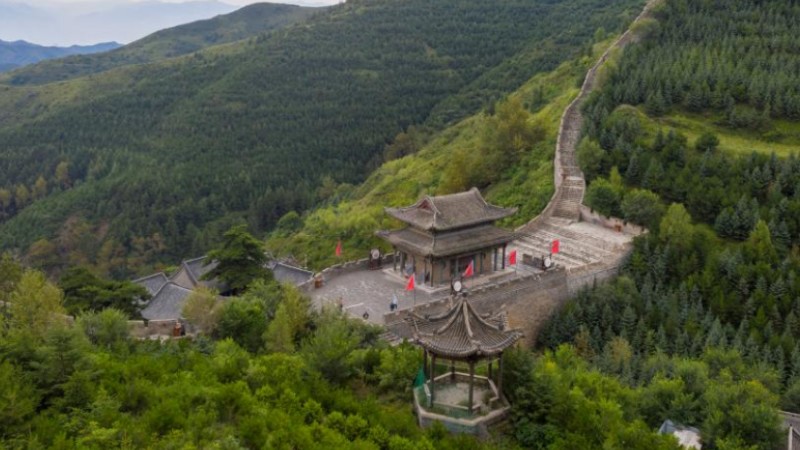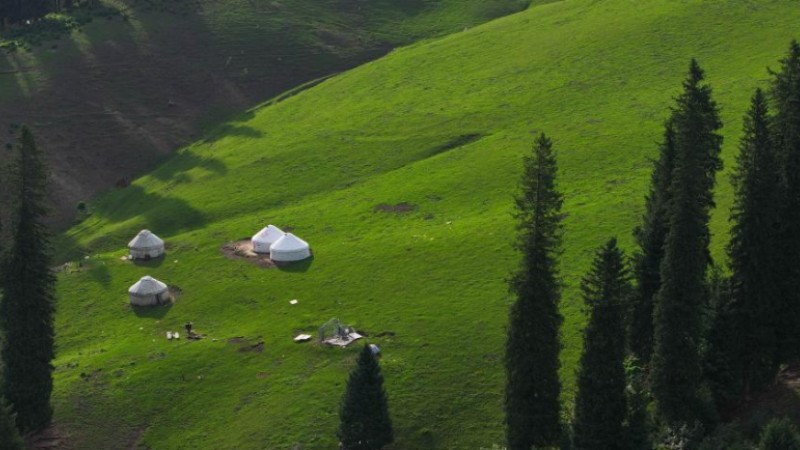Green development in Tibet brings tangible benefits

This aerial photo taken on Aug. 26, 2023 shows scenery of a lake in Ngari Prefecture, southwest China's Tibet Autonomous Region. (Xinhua/Liu Wenbo)
LHASA, Sept. 1 (Xinhua) -- At the foot of a hill by the Lhasa River, Tibetan-style tents stand out against the backdrop of the remote Potala Palace, creating an idyllic setting where Konchock Tenzin is picnicking with his family.
Pointing to the verdant hills, Konchock Tenzin, who hails from Lhasa, capital city of southwest China's Tibet Autonomous Region, said, "The once bare mountains are now cloaked in lush greenery, and the overall appearance of Lhasa has improved a lot."
Green development in Tibet has brought tangible benefits to the locals, not just in terms of an improved environment but also through increased employment opportunities.
Furthermore, with the law on ecological conservation on the Qinghai-Tibet Plateau coming into effect on Friday, efforts to protect Tibet's pristine environment will be both guided and guarded by legal measures.
At an afforestation site in the Palding Mountain of Lhasa, located at an altitude of about 4,200 meters, Dorje, hailing from Namling County in Xigaze City, is pausing to rest beside the sea buckthorn plants he has recently planted.
The 39-year-old Dorje finds himself employed in Lhasa, thanks to the enduring collaborations forged by Namling County in 2022 with around a dozen research institutes and businesses in Tibet. Through these partnerships, over 600 farmers and herders from the county have gained access to paid employment opportunities, broadening their income streams beyond traditional activities such as cultivating highland barley and raising livestock.
"At first, it didn't occur to me that planting trees could also generate income, but now I find many people like me are holding the 'rice bowl of ecological conservation,'" said Dorje, adding that the afforestation efforts in the mountains of Lhasa have created job opportunities for them, yielding a monthly income of more than 6,000 yuan (about 836 U.S. dollars).
The concrete benefits stemming from green development have motivated local residents to become more self-driven in their commitment to environmental protection, with the new ecological conservation law providing a framework of legal support.
The law, with 63 articles in seven chapters, was passed in April. It outlines the overall layout of plateau ecology security, specifying measures for protection and restoration, risk prevention and management, as well as provisions for oversight and supervision.
It is the first state-level legislation specialized in regulating ecological conservation on the Qinghai-Tibet Plateau.
The Qinghai-Tibet Plateau, known as "the roof of the world," with an area of around 2.58 million square kilometers, spans six provincial-level regions in western China. It is the source of several major rivers of Asia, such as the Yangtze, Yellow, and Mekong rivers. It is also one of the regions most sensitive to global climate change.
With the law coming into force, the concept of ecological civilization will be carried forward in Tibet, and local wildlife will enjoy better protection, said Zhang Xiuyu, director of the Institute of Ecological Civilization and Green Development of the Guangdong Academy of Environmental Science, who frequented Tibet as a researcher.
"Apart from afforestation projects, river cleansing initiatives across Tibet have led to continuous improvement of the water environment," Zhang added.
Since 2018, Tibet has successfully implemented the system of river chiefs and lake chiefs, where each river and lake is assigned an individual in charge.
The new law also includes provisions for dealing with unruly travelers. It prescribes penalties for those who litter on the plateau, stipulating that individuals with serious violations shall be fined between 500 yuan and 10,000 yuan.
It provides support to personnel working at tourist attractions in Tibet, alleviating the challenges they previously faced, such as the accumulation of garbage in scenic areas, especially during the bustling summer season.
"The implementation of the law will raise public awareness of environmental protection and discourage misbehavior by tourists," said Lhapa Tsering, a staffer of the Qomolangma National Nature Reserve Administration.
Photos
Related Stories
- China responds with reciprocal visa curbs over accusations of alleged 'forced assimilation' in Tibet: Foreign Ministry
- Tibetan incense brings wealth to town of SW China's Xizang
- Scenery of Sapukonglagabo Mountain in SW China's Tibet
- Bird's eye view of splendid Dujun Grand Canyon in Tibet
- Lake scenery in SW China's Tibet
Copyright © 2023 People's Daily Online. All Rights Reserved.









